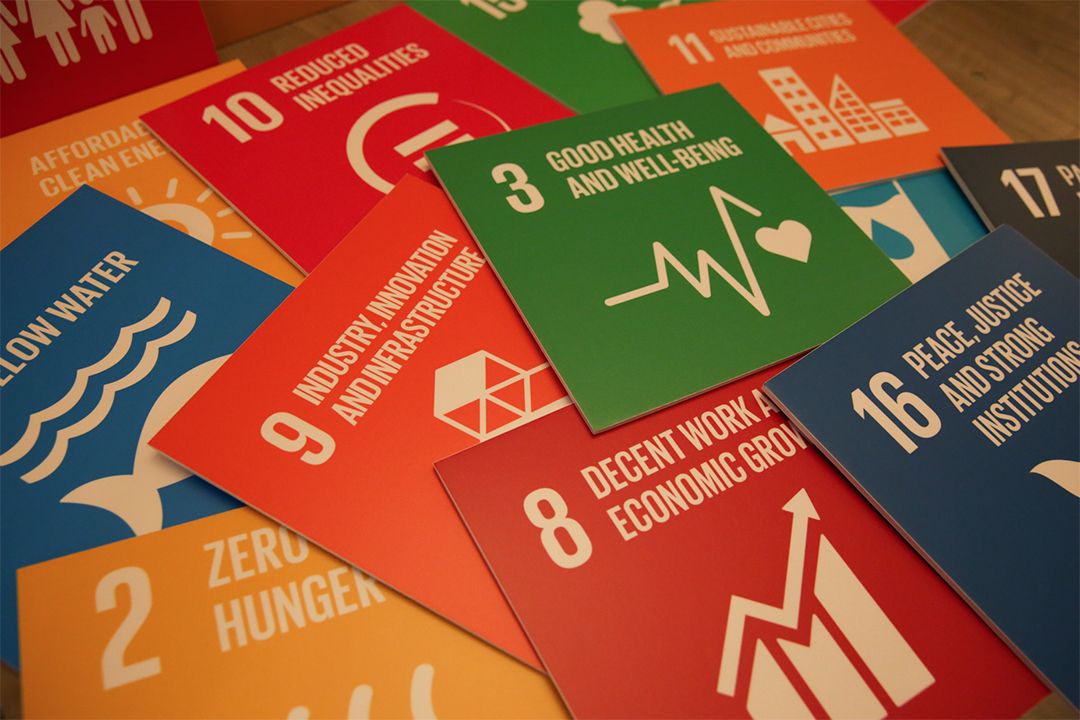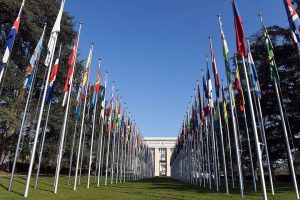22 February 2018: Senior decision-makers responsible for coordinating national Sustainable Development Goal (SDG) implementation discussed national and regional partnerships for the Goals at a regional forum in Belarus. Participants focused on common problems and obstacles encountered in the process of SDG implementation, as well as on policies and structures to overcome them.
The Regional SDG Coordination Leaders Forum, themed ‘Building a Partnership to Underpin National Sustainable Development Solutions,’ took place from 21-22 February 2018 in Minsk, Belarus. The event was organized by the Ministry of Foreign Affairs of Belarus and the National Coordinator on Implementation of SDGs in Belarus, in cooperation with the UN.
Speaking at the Forum, UN Deputy Secretary-General Amina Mohammed stressed that a whole-of-government and whole-of-society approach “must become our new norm” in the process of SDG implementation. She welcomed the establishment of National Coordination Offices for the 2030 Agenda for Sustainable Development across the region as a “highly commendable” mechanism for ensuring a whole-of-government approach. She further explained that meaningful multi-stakeholder partnerships will be fundamental in the design, implementation, financing and evaluation of development solutions, including data partnerships at all levels of society.
The Deputy Secretary-General also emphasized that the need to balance urban growth and the construction of new local infrastructure requires actions that go beyond traditional administrative boundaries. Noting that small and medium-sized enterprises (SMEs) are slowly “coming on board” with the SDGs, she stressed the need for their support as they play a major role in boosting economies. Highlighting that longer-term risks, such as those associated with climate change, need to be priced into decision making, Mohammed called for ministers of finance to be at the helm in building a more responsive international finance system that incentivizes sustainable investments. She urged harnessing the data revolution for generating high quality data to provide “the right information on the right things at the right time” for the design, financing, and monitoring and evaluation of policies.
The outcomes of the Regional SDG Coordination Leaders Forum will feed input into the HLPF in New York in July.
Among the challenges for the region, the Chair’s summary of the forum notes growing inequality, the threat of rising unemployment, climate change and energy insecurity. Forum participants identified ensuring gender equality, transition to a green economy and digitalization of society, as well as building statistical capacity for disaggregated data, as key areas of focus for successful implementation of the SDGs.
The Chair’s summary notes that the countries of the region are currently carrying out nationalization of the SDGs through the development of national statistical systems based on global indicators. Participants recommended that this process be accompanied by the integration of the SDGs in national budgets and legislation. Participants also called for securing funding for the SDGs, including through the mobilization of domestic resources by creating national funds, introducing a tax incentive system and stimulating business investment.
Other factors identified as important for the national achievement of the SDGs include: promoting public-private partnerships (PPPs), as well as partnerships with civil society and academia; and establishing interparliamentary cooperation on issues related to the SDGs to facilitate the exchange of experience, harmonization of national legislations, development of common standards and norms, and the promotion of joint initiatives. The summary notes that barriers, such as regulatory environments and the lack of information and systematic cooperation between public and private sectors, currently do not allow for more private sector enterprises to engage in and respond to SDG implementation.
Forum participants also emphasized that countries retain leadership in the implementation of the 2030 Agenda, whereas the task of international organizations is to assist governments in building the capacity of national institutions, taking into account the national context and development priorities. They noted that the UN Development Programme (UNDP) Mainstreaming, Acceleration and Policy Support (MAPS) missions proved to be an effective tool for expert support of States. They recommended that MAPS tools be used to analyze and evaluate national policies, develop roadmaps to achieve the SDGs and identify bottlenecks and factors for accelerating sustainable development.
Participants also emphasized the importance of regional collaboration. As successful examples, they highlighted the experience of the Eurasian Economic Union in preparing the SDG review of its region, developing priorities and methodology, as well as the experience of implementing EU instruments to achieve the SDGs at the national and global levels. They welcomed the UN Secretary-General’s UN reform proposal to create a regional coordination mechanism, noting that it will facilitate the development of cooperation between the countries of the region in addressing similar challenges. Emphasizing the need for generalized information on best practices in organizing the work on the SDGs at the national level, participants invited the UN Economic Commission for Europe (UNECE) and UNDP to contribute to the development of such an information resource in the ECE region.
The Chair’s summary of the Minsk Forum was presented at the Regional Forum on Sustainable Development for the UNECE Region that took place on 1 March 2018 in Geneva, Switzerland. The regional forum’s outcomes will feed input into the High-level Political Forum on Sustainable Development (HLPF) in New York in July. [Chair’s Summary of the Forum] [Forum Website] [UN Deputy Secretary-General Remarks] [UN Press Release]


